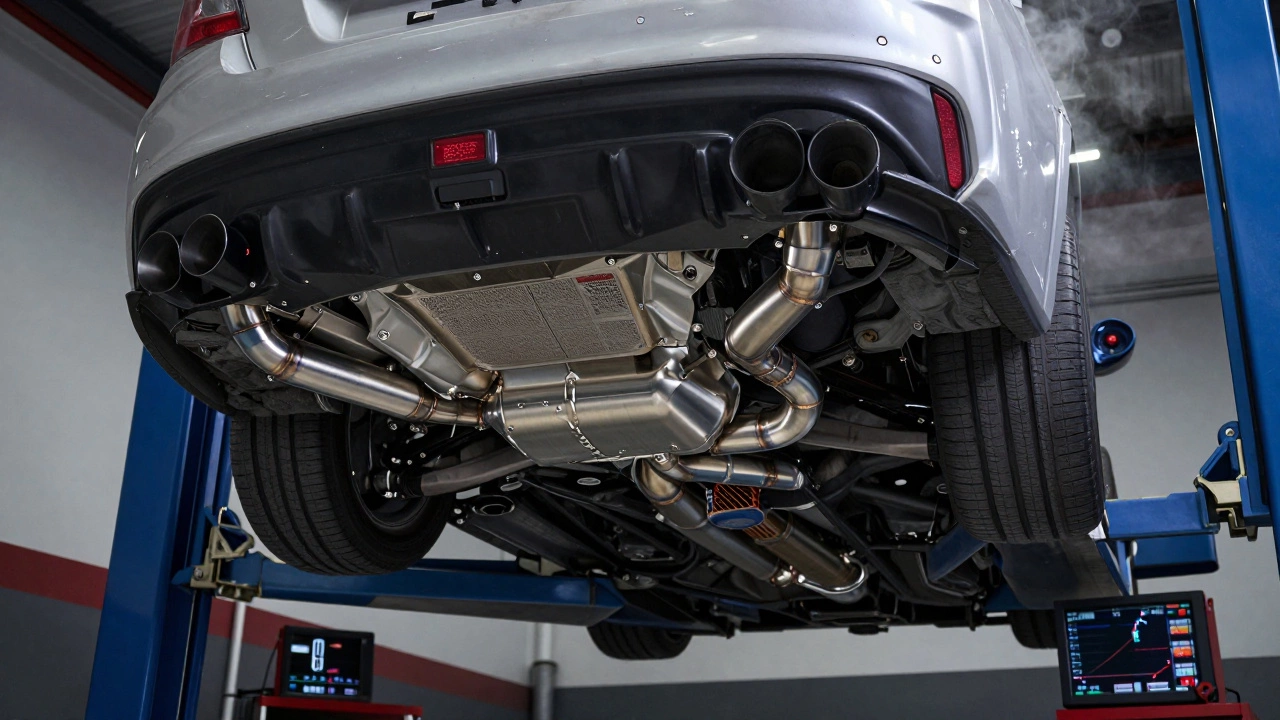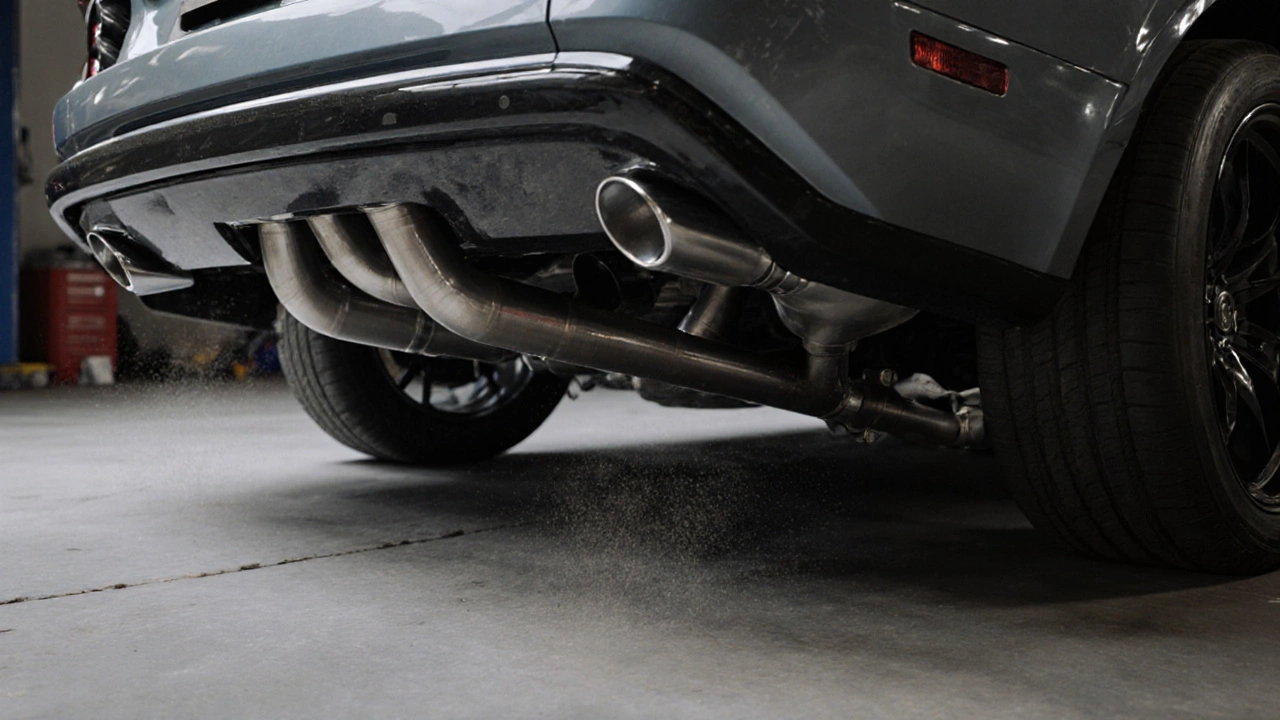Exhaust System: Upgrades, Sound, and What the Law Says
If you love the rumble of a good exhaust, you’re not alone. Most car fans start with a simple change – a new pipe, a cat‑back kit, or a resonator delete – and end up with a louder, sharper tone. But the excitement can turn into a headache if you don’t know the basics. Below you’ll find straight‑forward advice on common mods, the sound they produce, and how to stay on the right side of the law.
Common Exhaust Mods and Their Effects
First up, the resonator delete. Removing the resonator makes the exhaust note louder and more aggressive because the sound‑dampening chamber is gone. You’ll notice more “growl” at low RPMs and a clearer tone at higher revs. The trade‑off? A slight loss in back‑pressure can affect fuel efficiency and, in some cars, marginally reduce torque. If you’re okay with a bit more noise for that aggressive sound, a resonator delete is a cheap, easy win.
Next, the cat‑back system. This replaces everything from the catalytic converter to the tailpipe. A well‑designed cat‑back can boost horsepower by improving exhaust flow, while also delivering a deeper tone. Choose stainless steel for durability and a polished look, but remember that many cat‑back kits are louder than stock, especially on the down‑stroke.
The header upgrade is another popular route. Headers replace the stock exhaust manifold and can free up a lot of flow, especially on turbo cars. The result is a louder, more raspy sound and a noticeable power bump. However, headers are pricier and may require custom tuning to keep the engine running smoothly.
Pops, Bangs, and Legal Limits
“Pops and bangs” are the crackling noises you hear when you lift off the throttle. They’re caused by unburnt fuel igniting in the exhaust. While many drivers enjoy the street‑concert effect, the sound can be a red flag for police. In the UK, a noisy exhaust can lead to a NCT (National Car Test) failure or a fine if it exceeds legal limits. A quick check: if the sound is so loud you can’t hold a conversation inside the car, you’re probably over the line.
Speaking of fines, a loud‑exhaust ticket can cost anywhere from £80 to £150, plus possible points on your licence. The key is to know your local limits – usually measured in decibels at a set distance. Some sports cars come with a factory‑installed “sport mode” that temporarily lifts the sound level, but even that can be flagged if you stay in traffic.
To avoid tickets, consider a silencer or muffler designed for a specific sound level. Many brands market “quiet‑tuned” cat‑back systems that give you a deeper tone without crossing legal thresholds. It’s a win‑win: you get a richer exhaust note and stay compliant.
Finally, regular maintenance matters. A cracked pipe or loose clamp can amplify noise unintentionally and cause rattles. Inspect your exhaust after every major road trip, tighten any loose bolts, and replace rusted sections promptly. A well‑kept system not only sounds better but also lasts longer.
In short, upgrading your exhaust can give you more power, a cooler sound, and a fresh look. Just weigh the noise you want against local regulations, keep an eye on back‑pressure changes, and stay on top of maintenance. With the right choices, your car will roar down the road without getting you a ticket.
Curious about double silencers and what they actually do for your ride? This article breaks down how double silencers work, why they’re used in custom exhausts, and their real effects on sound, performance, and daily driving. Get the lowdown on the pros, cons, and tips for choosing or upgrading to a double silencer setup. No jargon or fluff, just straight answers that help you decide what’s right for your car.




